Your cart is currently empty!
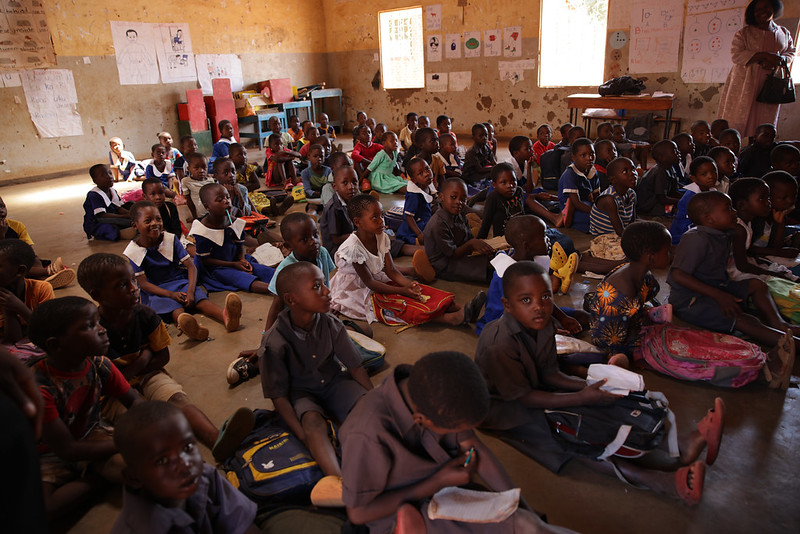
Society of St. Peter the Apostle
The Society of St. Peter the Apostle
In your part of the city and around the country, seminarians are excited for summer formation experiences, well-earned vacations, time with family and friends…
…but seminarians in Malawi enter this summer still struggling to survive after a devastating cyclone last year, and my hope is YOU will help give them the support and HOPE they urgently need.
You see, Malawi is the 7th poorest nation in the world, and when Cyclone Freddy hit last year, the storm washed away homes, health centers, and schools. It was the longest-lasting tropical cycle ever recorded, and it cut off vital lifelines for people suffering in deep poverty and still struggling to recover from the cyclones of 2022.
But amid the devastation in central Phalombe (the regional capital), one complex remained standing: the Likanani Catholic Parish and adjoining primary school. Here, missionary priests, religious women, and lay catechists have been distributing food and money. But for one survivor – seminarian Deacon Howard – these missionaries offer more than material goods – they affirm his call to a religious vocation.
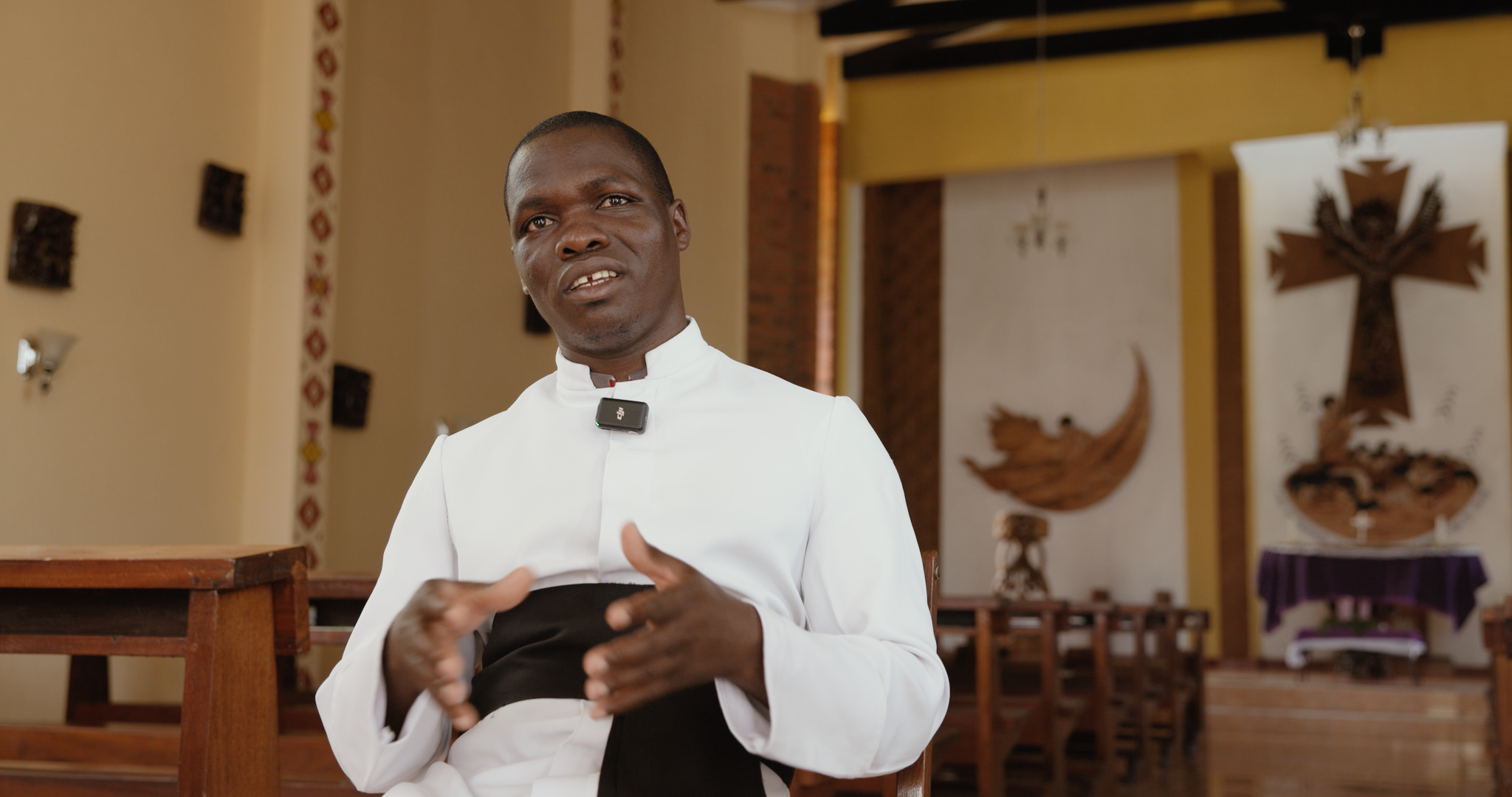
Deacon Howard was deeply affected by the storm’s aftermath and the shortage of priests to minister to his community. After all, he learned to read and write in this Catholic school. He received his First Communion in this parish.
And now, with his marginalized corner of this impoverished country struggling to rebuild, he is more inspired than ever to finish his studies and serve the people right here in the heart of so much suffering. Will you help him and make a gift of $100, $350, or even $700 to the Society of St. Peter Apostle?
Your thoughtful generosity will help seminarians like Deacon Howard to become a priest and tend to a flock that relies on the Catholic Church as a lifeline – spiritually and literally. “I wouldn’t have made it into the priesthood! And we are in dire need of priests!”
“My dream, my hope, is that I will complete my studies and be ordained into the priesthood this July, and go back to this parish. There is currently only one priest, and he struggles to meet the needs of the 40 outer stations of the parish. He does his best, but even then, most people go three months without seeing a priest.”
Deacon Howard
St. Peter is the only major seminary in the country, and your support is crucial to keeping it open. The Church of Malawi spent $2,000 per year throughout Deacon’s training (he’s currently in his ninth and final year).
The Pontifical Mission Societies USA, through the Society of St. Peter the Apostle, is committed to helping seminaries such as St. Peter’s in Malawi, as well as centers of formation for future religious sisters, through grants and scholarships.
“If it weren’t for the help we receive from donors to The Pontifical Mission Societies, which includes a yearly scholarship of $700 per seminarian, young men such as Deacon Howard would never make it into the priesthood.”
Father Daniel Chasowa Kamanga Rector of St. Peter Seminary in Malawi
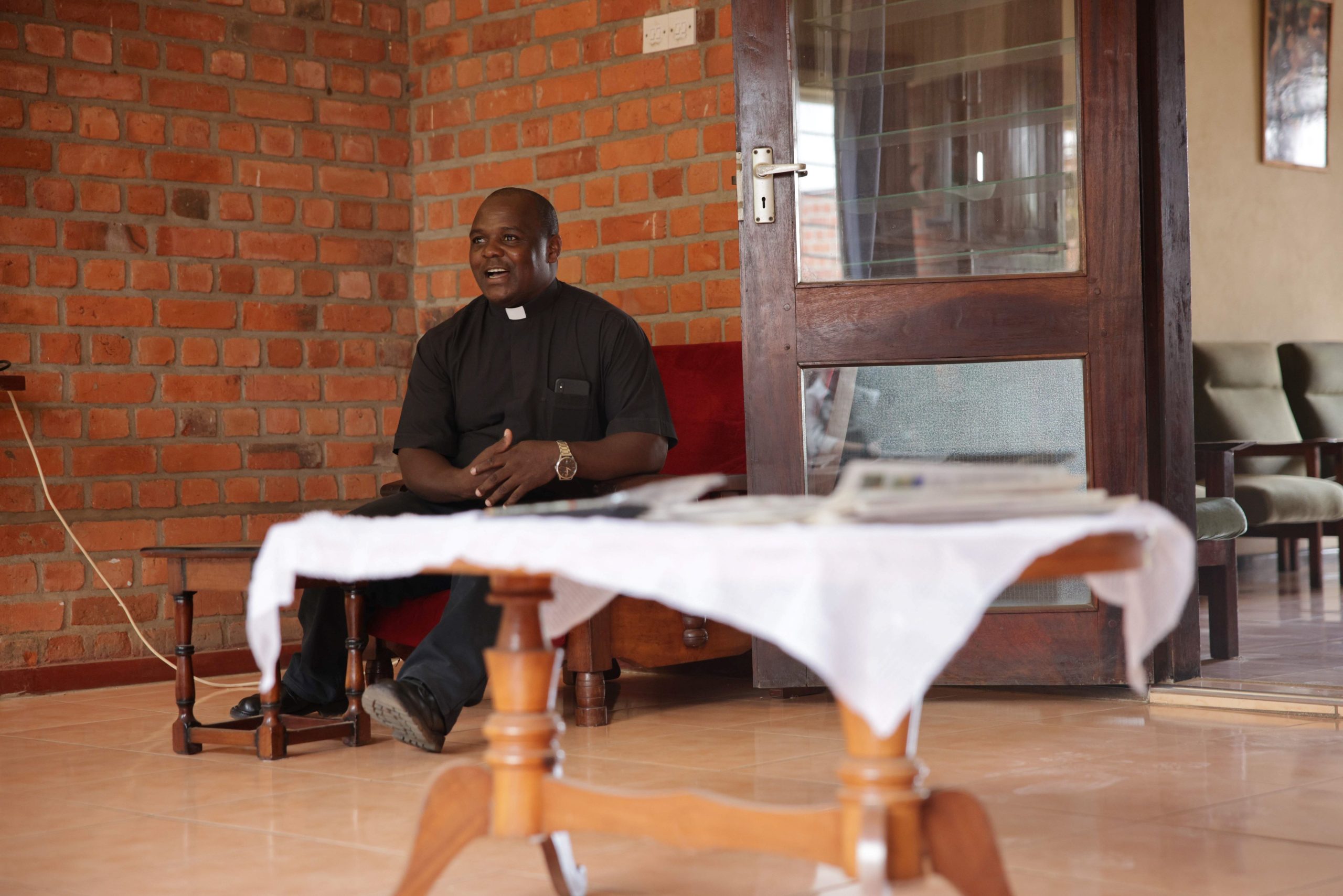
This means that, through the generosity of our donors, in the year 2023 we were able to help over 38,000 young men as they prepare to be sent as workers to the vineyard.
Think about this, if two people give $350 or seven people give $100, we can fund a year for a remarkable young seminarian like Deacon Howard, who yearns to join the priesthood and serve His people in the impoverished nation of Malawi. Please make your most generous gift today! Your donation and your support will make a real impact helping the Church bring hope, assistance, and salvation around the world.
Donations in the form of a check or money order should be made payable to The Society for the Propagation of the Faith- memo: Society of St. Peter Apostle, the Pontifical Mission Societies, 3424 Wilshire Blvd- 3rd Floor, Los Angeles CA 90010. Want to save a tree? Why not donate online and click Society of St. Peter Apostle.
PLEASE PRAY FOR VOCATIONS AND MAKE AN OFFERING TODAY
Father, You will Your Church
to be the sacrament
of salvation to all peoples.
Make us feel more urgently
the call to work for the salvation
of our human family until
You have made us one people.
Inspire us to continue the saving
work of Christ everywhere until
the end of the world.
Our Father
Hail Mary
Glory Be…
St. Francis Xavier, Pray for us.
St. Therese of the Child Jesus,
Pray for us.
Amen.

Jeanne Bigard
In 1889, mother and daughter — Stephanie and Jeanne Bigard — answered a desperate plea for help from the Missions. The French missionary bishop of Nagasaki, Japan, wrote to the two women asking for help to keep his seminary open because he had run out of the funds necessary to help educate these young men to serve their people as priests. The bishop just did not have the funds to train these young Japanese men whom, he judged, would make excellent priests.
The Bigards came to his assistance and started a small group for this purpose in their native Caen, France. From these humble beginnings emerged the Society of St. Peter Apostle. Within five years of sending their first donation to Japan, the Bigards, and those whom they enlisted to help, were sending funds to seminaries in India, Sri Lanka, Vietnam, Korea, and China.
The goal of the Society of St. Peter Apostle then and now has been to invite individuals to support the education of candidates for the Catholic priesthood in the Developing World and to support the continued formation and training of priests, religious brothers, and sisters in the mission lands.
In its first year, the Society of St. Peter Apostle sent assistance for some 2,700 seminarians in the Missions. Today, some 30,000 major seminarians, mostly in Africa and Asia, receive an annual subsidy of $700 per student.
On Open Seas Sisters Travel with the Word
“When the boat arrived at the island, how many children and people came out from those poor simple homes to greet them!” Sister Marissa Maraya recalled. “This was how the Lord brought us to Iling!”
A member of the Missionary Servants of the Blessed Sacrament, Sister Marissa, and her community serve the poor in her native Philippines. These sisters first visited the island of Iling, a one-and-a-half-hour boat ride from Mindoro. When they arrived, they found the poorest of the poor and great suffering. The week before, the villages of the island had been devastated by an epidemic disease which caused death in almost all the families. Many died because there was no doctor, nurse, or treatment available. In fact, the island also had no electricity, safe water, sufficient food, or education opportunities.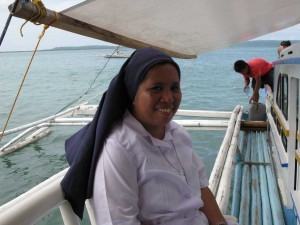
Sister Marissa Maraya
“But our Sisters’ new friends welcomed them with flowers and gratitude, and somebody quickly got some coconut milk for them to drink,” Sister Marissa said. “The people quickly took our Sisters to see their small chapel, and there they went to pray. They thanked the Lord for bringing the Sisters there, and they prayed for all who had died in the recent epidemic.” “At that moment, our Sisters decided to do something for the people here according to our little possibility – but with lots of love,” she remembered.
The sisters returned every week. In a small one-room building near the chapel – both of which were made possible with support from the Society of St. Peter the Apostle – the sisters taught village children basic school subjects while always reminding them of the Lord’s great love. They brought simple medicines and those of the sisters who had some medical training administered routine care. There were also sewing courses for women and young mothers in the area. As time went on, the sisters started a scholarship program, helping to give hundreds of poor children from Iling the opportunity for an education.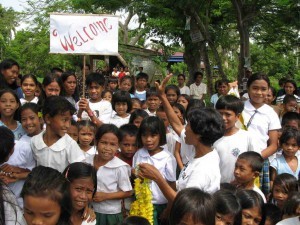
Welcome!
“Poverty remains the problem,” Sister Marissa observed. “But there have been changes, improvements, especially in education.” And the people on this predominantly Catholic island have also changed – they have discovered the beauty and joy of being missionaries themselves. By way of illustration, Sister Marissa shared the story of Nene, a young girl the sisters taught in the school they set up. The first time they met Nene, she asked the sisters to visit her mother who was sick and couldn’t leave the house. They found the woman lying on a bamboo bed, weak and tired. On that first meeting, and every time after that, the sisters encouraged her to offer her prayers and sufferings for missionary work. Before she died, she wrote this message to the sisters: “My sickness forced me to stay in bed the whole day and stopped me from caring for my children and family. For many years, I felt useless. And then your sisters brought me hope and helped me to understand that I can help the mission. During my day, I travel in my thoughts from one place on earth to another, visiting the Missions by accompanying missionaries with my prayers. I who never thought of going out of my little village,” Nene’s mother said, “have reached other continents through prayer.”
Chapel
That first journey on open seas launched new ways for a group of sisters to serve the poor – and started an island community on the journey to being missionaries themselves. Today in the missions, young men and women novices are preparing to serve their people as religious brothers and sisters. Each receives annual help for their formation through the Society of St. Peter Apostle.
Also, throughout Asia, Africa, the Pacific Islands, and remote regions of Latin America, there are seminarians in formation. They have heard the Lord’s call to the priesthood but lack the financial help to complete their seminary studies. Like those preparing for religious life, these seminarians need your help.
From Supermarket to ‘Sign of Hope’
Chanakila Lubasi was once the manager of a local supermarket in his native Zambia. Five years ago, he was ordained a priest. “I want to be a sign of hope that Christ is present in the joyful and sorrowful mysteries of life,” Lubasi said as a seminarian. Reading the Gospels, he was particularly struck by the Lord’s call to “proclaim the ‘Good News’ to the whole world.” “These words,” he explained, “eventually compelled me to go to the seminary.”
Zambia is a country marked by extreme poverty and a place where the HIV/AIDS epidemic has left thousands of orphans. “My role as a priest would be to point to Christ – for strength, for hope,” observed Lubasi. A fellow seminarian Aaron Njobvu agreed. “I am becoming a priest above all to serve,” he says. “I want to be a sign of the love of God for all,” Njobvu stressed the importance of the Eucharist in his service. “In the Eucharist especially the broken connect with Jesus and His love,” he explained. “It will be my privilege to celebrate the Eucharist among my own people.”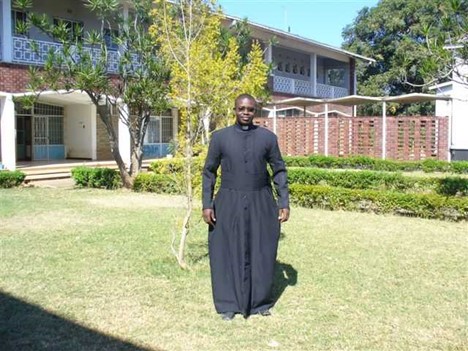
Father Chanakila Lubasi
Today, young men are preparing for the priesthood at the seminary where Fathers Lubasi and Njobvu studied, St. Dominic’s Major Seminary in Lusaka, Zambia. Each seminarian receives $700 in annual support through the Society of St. Peter Apostle – about $5 a day. Throughout Asia, Africa, the Pacific Islands, and remote regions of Latin America, there are some 30,000 major seminarians in formation. They have heard the Lord’s call to the priesthood but lack the financial help to complete their seminary studies. They need your help – to be “signs of hope,” to “serve” – and to help the poor and most vulnerable in our mission family “feel the hand of the Lord on their shoulders.” Through donations to the Society of St. Peter Apostle, these young men receive that support, and the poor of the Missions are reached with the powerful, hope-filled presence of our Lord.
Pray for them; give generously to support their studies with your donation to the Society of St. Peter Apostle.